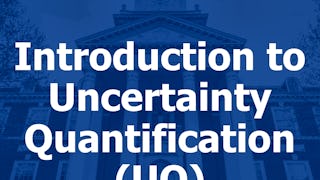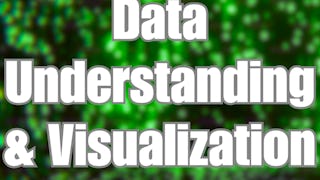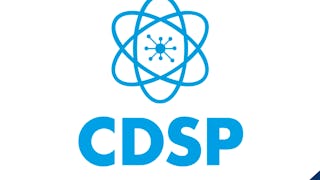This course provides a comprehensive exploration of statistical variability, equipping students with the skills to identify and interpret various measures within data distributions. Learners will delve into calculating variance and standard deviation, comparing these measures, and understanding their implications. The course also emphasizes graphical analysis, enabling students to visually compare distributions with varying degrees of variability.



Measures of Variability
Ce cours fait partie de Spécialisation Data Exploration in Psychology

Instructeur : Mike Stadler, PhD
Inclus avec 
Expérience recommandée
Expérience recommandée
Ce que vous apprendrez
Explain the nature and basic measures of variability.
Calculate and interpret variance and standard deviation.
Describe variability in frequency distributions.
Détails à connaître

Ajouter à votre profil LinkedIn
septembre 2024
10 devoirs
Découvrez comment les employés des entreprises prestigieuses maîtrisent des compétences recherchées

Élaborez votre expertise du sujet
- Apprenez de nouveaux concepts auprès d'experts du secteur
- Acquérez une compréhension de base d'un sujet ou d'un outil
- Développez des compétences professionnelles avec des projets pratiques
- Obtenez un certificat professionnel partageable


Obtenez un certificat professionnel
Ajoutez cette qualification à votre profil LinkedIn ou à votre CV
Partagez-le sur les réseaux sociaux et dans votre évaluation de performance

Il y a 7 modules dans ce cours
This module introduces you to your PsycLearn Essentials course. Find out what’s included in this course and how to navigate the modules and lessons. You’ll also learn valuable study tips for successful learning.
Inclus
7 lectures
Variability matters! Look around you at the variety of people and objects you see right now. Listen to all of the different sounds you are hearing. Variability is what makes statistics (and life) intriguing. What are you interested in? Have you ever wondered why people laugh at different kinds of jokes? Or how to predict peoples’ job satisfaction? Or how people choose who they date? One key to answering any of these questions statistically is variance. Yes, it is important to know the average value of a variable, but perhaps more interesting are how observations differ from the average. In this module, we will examine different ways to calculate and interpret the variability in a variable.
Inclus
1 vidéo1 lecture
In this module, we explore the definition and nature of variability in detail, and also identify basic ways of describing variability with markers in a data set such as the minimum or maximum value, or various percentiles, along with ranges defined by these markers.
Inclus
2 vidéos4 lectures3 devoirs
How do we measure the variability of data if it varies each time it is recorded…and why is this important? Let’s say you have been given data from a sleep study that found that its participants slept about 7 hours each night over a month. Each night will not always equal exactly 7 hours; some nights might average less than 7 hours and some nights more than 7 hours. How can we measure this variance over the spread of the data? In this section, you learn how the measures of variability—variance and standard deviation—are calculated and when to use them. Keeping in mind examples like the sleep study will help you to think about other concrete applications of these measures as you work through this section.
Inclus
4 vidéos5 lectures3 devoirs
Learn how variability can be observed in a distribution by inspecting the shape of the distribution. Just as a single measure of central tendency such as the mean usefully summarizes an aspect of a distribution in a single number while possibly masking other aspects of the distribution, the range or the standard deviation can only communicate so much, and much remains to be seen in a plot of the distribution.
Inclus
1 vidéo3 lectures3 devoirs
Inclus
2 lectures1 devoir
This module provides a variety of information and tools from the American Psychological Association (APA) that will help inspire you as you complete your coursework and plan your career goals. Explore APA resources on various psychological issues and scholarly research and writing; a list of sites providing valuable resources on diversity, equity, and inclusion in psychology education and in the professional community; resources on a career in psychology; and links to career opportunities at the APA.
Inclus
8 lectures
Instructeur

Offert par
Recommandé si vous êtes intéressé(e) par Data Analysis


American Psychological Association


Johns Hopkins University


University of Colorado Boulder


CertNexus
Pour quelles raisons les étudiants sur Coursera nous choisissent-ils pour leur carrière ?






Ouvrez de nouvelles portes avec Coursera Plus
Accès illimité à 10,000+ cours de niveau international, projets pratiques et programmes de certification prêts à l'emploi - tous inclus dans votre abonnement.

Faites progresser votre carrière avec un diplôme en ligne
Obtenez un diplôme auprès d’universités de renommée mondiale - 100 % en ligne

Rejoignez plus de 3 400 entreprises mondiales qui ont choisi Coursera pour les affaires
Améliorez les compétences de vos employés pour exceller dans l’économie numérique
Foire Aux Questions
Access to lectures and assignments depends on your type of enrollment. If you take a course in audit mode, you will be able to see most course materials for free. To access graded assignments and to earn a Certificate, you will need to purchase the Certificate experience, during or after your audit. If you don't see the audit option:
The course may not offer an audit option. You can try a Free Trial instead, or apply for Financial Aid.
The course may offer 'Full Course, No Certificate' instead. This option lets you see all course materials, submit required assessments, and get a final grade. This also means that you will not be able to purchase a Certificate experience.
When you enroll in the course, you get access to all of the courses in the Specialization, and you earn a certificate when you complete the work. Your electronic Certificate will be added to your Accomplishments page - from there, you can print your Certificate or add it to your LinkedIn profile. If you only want to read and view the course content, you can audit the course for free.
If you subscribed, you get a 7-day free trial during which you can cancel at no penalty. After that, we don’t give refunds, but you can cancel your subscription at any time. See our full refund policy.

